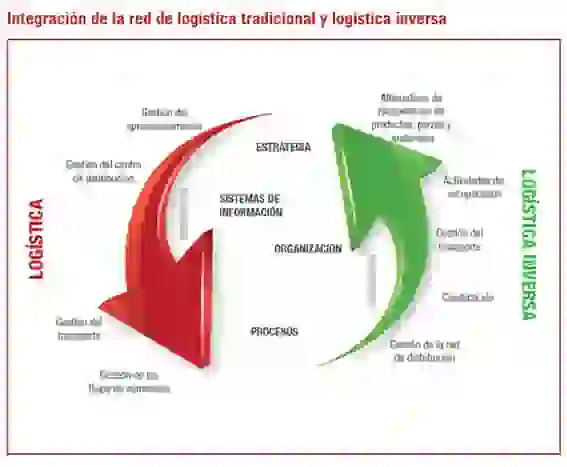The shopping ecosystem is changing at a pace never seen before. The strong growth of e-commerce in recent times, the change in consumer habits, the growing commitment to sustainability or the emergence of new and interesting technologies have led to further progress in the commitment to the optimization of processes and the supply chain, better customer service and an optimal service that meets all the requirements of both brands and final consumers.
It is therefore necessary to know what will be the trends that will stand out this 2023 in retailers and brands, which will allow the industry to face the future scenario that is presented, where aspects such as shortages, the cost of energy or the rise in fuels, among other things, will once again prevail. In fact, according to Forrester, the approach of businesses must be in line with technology and with a greater efficiency of its logistics, whose potential will help them generate a more attractive commitment and greater loyalty by their clients. Let’s see what those trends will be:
1.-The end of free returns.

During the last months, this idea has been forged in many important brands of all sectors. The impact of reverse logistics for the income statement is unsustainable, so companies are considering limiting free returns to certain products, in size changes or when the buyer approaches a physical store to make the return. Brands will create new loyalty strategies that prioritize the lowest rate of return of their products.
According to the National Observatory of Technology and Society, 40% of buyers return a product, and that has led some companies to charge the postage for picking up the packages at the buyer’s home. Inditex already does so in 30 countries. Amazon also in some cases.
Likewise, within reverse logistics we will also find more and more often the reuse of returned merchandise, which in many sectors is devalued, although it has not been used, so this 2023 we will witness the rise of e-commerce formulas to provide a second life to these items through their reconditioning and recycling solutions that avoid uncontrolled waste.
2.-Betting on technology to optimize processes.

The automation of activities in the warehouse, the use of data and blockchain, the arrival of robotics to accelerate operations in the supply chain or the use of Artificial Intelligence to improve traceability are just some of the applications of technology in the sector, which as a result can obtain benefits such as an improvement in the operability of processes or cost reduction. Not surprisingly, the automation of logistics processes will help enhance the flexibility of companies, so that they can offer a better service to clients and cope with increasingly unpredictable flows of goods and demand forecasts.
Innovation will be essential for logistics in 2023, so companies must commit to it as soon as possible to remain competitive and be able to meet the growing needs of clients. Because its impact on supply chains will be absolute, since it will make them autonomous and will grant them great levels of optimization in aspects such as storage and delivery.
This will also allow us to perform complete traceability on each order. And not only for the visibility of the product in motion, but also to optimize inventory in the warehouse. This way, for example, carriers should have the ability to react to setbacks in near real-time and know exactly where inventory is at any given time.
3.-Sustainability will change everything.

We have already told you on some other occasion, that one of the main challenges of supply chains in all sectors is sustainability, which is related to efficient logistics which promotes the optimal design of routes, environmentally friendly materials and processes that reduce emissions. For example, the last mile is one of the most polluting activities and the waste generated by the materials of products and their packaging is increasing.
Therefore, according to a study by the consultancy TRUE Global Intelligence and Smurfit Kappa, consumers consider sustainable packaging to be a key factor impacting whether they buy fashion online. Specifically, 51% of them indicate that the use of ecological packaging materials plays a fundamental role when it comes to purchasing clothing, footwear and accessories. A figure that will increase in 2023, where sustainability will be the norm.
That is why logistics companies must commit to increasingly efficient processes and carry out sustainable practices, not only to improve their reputation for clients and consumers, but also because they are aware of the need for all of us to row in the same direction to reverse climate change.
4.-Personalisation as a distinguishing element

Personalize the user experience, personalize each product, personalize each shipment and its tracking, personalize the logistics service provided to each client. In short, personalization at its best. Because for companies it is very important to have the best operations to increase consumer loyalty, so every detail counts.
An example: aspects such as the weight of the package, its size, how it is shipped or where the order is at all times must be available in real time to both buyer and seller. Because a continuous and detailed monitoring of both the shipment and the storage service is essential to be able to offer the best service today.
That’s why at Logisfashion we have value-added services such as item customization. In the case of textile or fashion products, we have the printing of sports shirts or embroidery of names or initials; for the jewelry, costume jewelry, bazaar and home sector we can engrave jewelry with messages or initials; We also engrave glasswork (glasses) and wood, among other options, so that users can take home unique pieces. In addition, we know the importance of branding, so we create the orders in a unique and personalized way, we carry out the packing tailored to the needs of each brand and we take care of every detail, with special operations for luxury items.
5.-New sales techniques.

Voice commerce, Live Shopping, visual commerce, social marketing or metaverse are just some of the concepts that will make an increasing difference in 2023 and which the industry must take into account to be competitive and adapt to the new times and consumers.
According to SAP Spain, e-commerce will account for a quarter of total sales in the world. Therefore, a better way to strengthen the connection with consumers is to join the bandwagon of new models and sales opportunities that are emerging.
Among them the rise of social platforms, which are increasingly also becoming payment methods. In data, one in three consumers in the US has already discovered the viability of buying and paying through social networks, using tools already on the market such as those provided by Google, Apple, Amazon or Facebook Pay. In this way, brands can expand their reach to demographics they would not otherwise reach, also exploring platforms such as Instagram and Tik Tok as sales channels.
In short, the world is changing at a dizzying pace, and logistics and e-commerce were not going to be left behind. Therefore, each brand and logistics company must adapt quickly to each change to be able to offer what the market and consumers demand at all times. The future is here!

